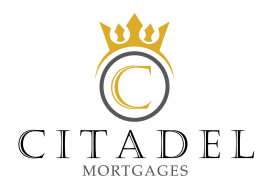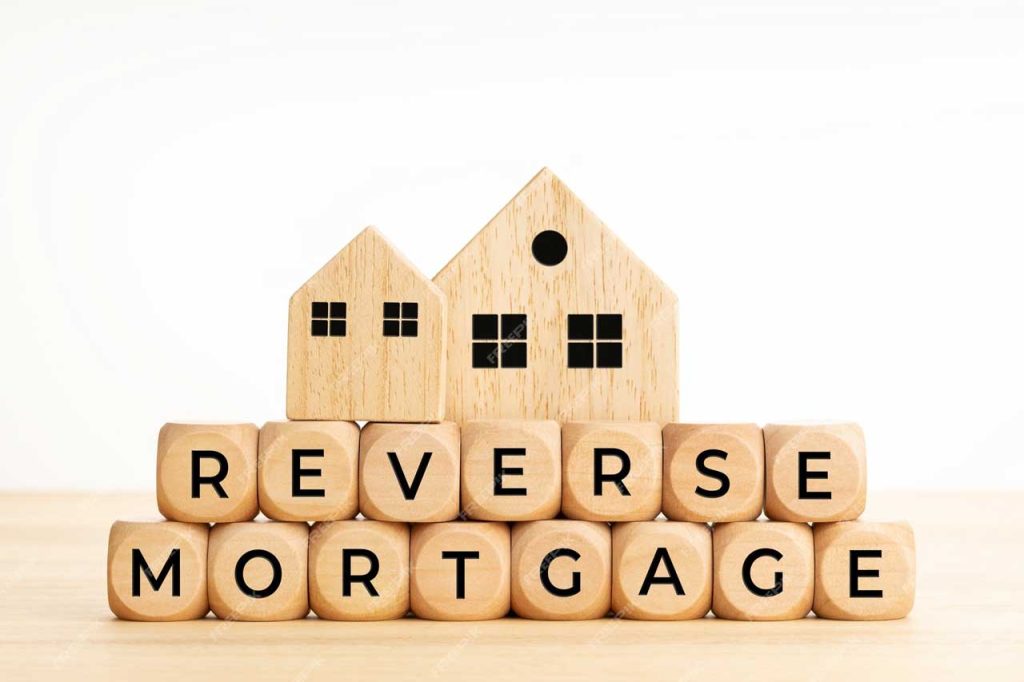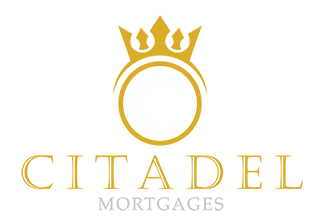What is a reverse mortgage?
A reverse mortgage is a financial product that allows Canadian homeowners aged 55 and older to access the equity they have built up in their homes. It is a loan that is secured against the value of the property and does not require monthly mortgage payments. Instead, the loan is repaid when the homeowner chooses to sell the home, move out, or passes away.
How does a reverse mortgage work in Canada?
In Canada, a reverse mortgage allows homeowners to access up to 55% of their home’s appraised value as tax-free cash. The amount that can be borrowed depends on factors such as the homeowner’s age, the location and condition of the home, and the appraised value of the property.
With a reverse mortgage, homeowners can choose to receive the funds in different ways. They can opt for a lump sum payment, receive regular scheduled payments, or a combination of both. The funds can be used to cover living expenses, medical bills, home renovations, or to consolidate debt.
One of the key advantages of a reverse mortgage in Canada is that there are no monthly mortgage payments required. Instead, the interest on the loan accrues and is added to the loan balance over time. The loan is only repaid when the homeowner decides to sell the home, move out, or passes away.
Who offers reverse mortgages in Canada?
In Canada, there are two main providers of reverse mortgages: HomeEquity Bank and Equitable Bank. HomeEquity Bank is the largest provider and has been offering reverse mortgages since 1986. They offer their reverse mortgage products directly to consumers and through major banks, credit unions, mortgage brokers, and financial planners. Equitable Bank, founded in 1970, also offers reverse mortgage products through independent mortgage brokers.
What are the types of reverse mortgages in Canada?
Reverse mortgages in Canada come in different types. Homeowners can choose between an open or closed mortgage agreement and decide whether they prefer a variable or fixed mortgage rate.
The CHIP Reverse Mortgage, offered by HomeEquity Bank, is one of the most widely-used reverse mortgage products in Canada. It allows homeowners to access their home equity while retaining ownership of their property.
What are the best mortgage rates in Canada?
When considering a reverse mortgage in Canada, it is important to compare mortgage rates from different lenders. The interest rates on reverse mortgages tend to be higher than traditional mortgages or home equity lines of credit. However, recent Bank of Canada interest rate hikes have made the rates on reverse mortgages more comparable.
It is recommended to consult with a mortgage broker who can provide information on the current mortgage rates available from different lenders. They can help homeowners find the best mortgage rates that suit their financial needs.
What is the eligibility for a reverse mortgage?
To be eligible for a reverse mortgage in Canada, homeowners must meet certain criteria. They must be at least 55 years old, own their home, and live in it as their principal residence. The home must have a minimum appraised value, typically around $200,000 or more.
During the application process, all individuals listed on the title of the home must be included. Lenders may also require borrowers to seek legal advice regarding the reverse mortgage. Proof of having received this advice may be required.
How do you apply for a reverse mortgage?
Applying for a reverse mortgage in Canada typically involves completing an estimate on the lender’s website. This estimate provides homeowners with an idea of how much they may be able to borrow. The lender will evaluate the application and determine the maximum amount to lend based on factors such as the homeowner’s age, the location and condition of the home, and the appraised value of the property.
During the application process, homeowners may be required to pay certain fees, such as closing fees, legal fees, and home appraisal charges. These costs can vary depending on the lender and the specific circumstances of the homeowner.
How much does a reverse mortgage cost?
Reverse mortgages in Canada come with certain fees and costs. These can include closing fees, legal fees, and home appraisal charges. The specific costs can vary depending on the lender and the homeowner’s circumstances.
In addition to the fees, reverse mortgages also have interest rates that accrue over time. The interest rates on reverse mortgages tend to be higher than traditional mortgages or home equity lines of credit. Homeowners should carefully consider the costs and fees associated with a reverse mortgage before deciding if it is the right financial option for them.
How do you receive your reverse mortgage funds?
If approved for a reverse mortgage, homeowners can choose to receive their funds in different ways. They can opt for a lump sum payment, where they receive the entire loan amount upfront. Alternatively, homeowners can choose to receive regular scheduled payments over a period of time. Some reverse mortgage products also allow for a combination of both options.
The choice of how to receive the funds depends on the homeowner’s financial needs and goals. If they have immediate expenses or debts to pay off, a lump sum payment may be more suitable. If they prefer a steady stream of income to cover regular expenses, scheduled payments may be a better option.
How do you pay back a reverse mortgage?
One of the benefits of a reverse mortgage in Canada is that homeowners are not required to make monthly mortgage payments. The loan is repaid when the homeowner decides to sell the home, move out, or passes away. At that time, the loan balance, including the accrued interest, is paid back to the lender from the proceeds of the sale.
It is important to note that interest continues to accrue on the loan balance over time. Making regular payments, even if they are not required, can help keep the interest costs in check. Homeowners should also be aware of any prepayment penalties that may apply if they choose to pay back the loan before the agreed-upon term.
Is a reverse mortgage a good idea in Canada?
Whether a reverse mortgage is a good idea in Canada depends on the homeowner’s individual circumstances and financial goals. Reverse mortgages can provide financial flexibility and peace of mind for retired homeowners living on fixed incomes. They allow homeowners to access the equity in their homes without having to sell or downsize.
However, there are also considerations to be aware of. Reverse mortgages come with fees and interest rates that can be higher than traditional mortgages. They also reduce the equity in the home, which may impact the inheritance left for heirs. Homeowners should carefully weigh the benefits and drawbacks of a reverse mortgage and consider alternative options before making a decision.
What are some of the things you need to ask before applying for a reverse mortgage?
Before applying for a reverse mortgage, homeowners should ask important questions to ensure they have a clear understanding of the product and its implications. Some questions to consider include:
- How will taking out a reverse mortgage impact my other financing options?
- What happens to my home and reverse mortgage if I die?
- Should I access all my loan funds at once or a little at a time?
- What happens if I am unable to pay my property taxes, insurance, or maintain my home?
- Is a reverse mortgage the best option for my financial needs and goals?
Asking these questions and seeking advice from a mortgage broker can help homeowners make an informed decision about whether a reverse mortgage is the right choice for them.
What are some of the alternatives to reverse mortgages?
If a reverse mortgage is not the right fit for a homeowner, there are alternative options to consider. These can include:
- Selling the home and downsizing: By selling the home, homeowners can access the equity without taking on a reverse mortgage. This option allows homeowners to have cash on hand and potentially reduce living expenses by moving to a smaller property.
- Selling other investments: Homeowners can sell other investments, such as stocks or bonds, to access cash. This option should be carefully considered, as it may have tax implications and impact long-term financial stability.
- Renting out a portion of the home: Homeowners can generate extra income by renting out a room or a portion of their home. This option requires careful consideration of the responsibilities and risks of being a landlord.
- Applying for a home equity loan: Homeowners may be eligible for a home equity loan, which allows them to borrow against the equity in their home. This option requires regular monthly payments and may have stricter eligibility criteria compared to a reverse mortgage.
What are the advantages of a reverse mortgage?
Reverse mortgages offer several advantages for Canadian homeowners. Some of the benefits include:
- The ability to stay in the home: Reverse mortgages allow homeowners to access the equity in their homes without having to sell or downsize. This can be especially beneficial for retirees who want to age in place.
- No monthly mortgage payments: Unlike traditional mortgages, reverse mortgages do not require monthly mortgage payments. This can provide financial relief for retirees on fixed incomes.
- Tax-free cash: The funds received from a reverse mortgage are tax-free, providing additional financial flexibility for homeowners.
- Flexibility in fund usage: Homeowners can use the funds from a reverse mortgage to meet various financial needs, such as covering living expenses, medical bills, home renovations, or helping family members with down payments on homes.
What are the disadvantages of a reverse mortgage?
While reverse mortgages offer advantages, there are also disadvantages to consider. Some of the drawbacks include:
- Higher interest rates: Reverse mortgages generally have higher interest rates compared to traditional mortgages or home equity lines of credit. This can result in higher overall borrowing costs.
- Reduced home equity: By using a reverse mortgage, homeowners reduce the equity in their homes. This may impact the inheritance left for heirs.
- Fees and costs: Reverse mortgages come with fees and costs, such as closing fees, legal fees, and home appraisal charges. These costs should be carefully considered before deciding on a reverse mortgage.
- Prepayment penalties: Some reverse mortgages have prepayment penalties if the homeowner chooses to pay back the loan before the agreed-upon term. These penalties should be understood before entering into a reverse mortgage agreement.
Which is better: A Home Equity Loan Or A Reverse Mortgage?
When deciding between a home equity loan and a reverse mortgage, homeowners should consider their individual financial needs and goals. Home equity loans require regular monthly payments and are best suited for homeowners with a steady income. They provide a lump sum of cash that can be used for specific purposes.
Reverse mortgages, on the other hand, do not require monthly mortgage payments and allow homeowners to access the equity in their homes without selling or downsizing. They provide more flexibility in how the funds can be used and are better suited for retirees on fixed incomes.
It is recommended to consult with a mortgage broker who can provide personalized advice based on the homeowner’s financial situation and goals.
How To Avoid Reverse Mortgage Scams
As with any financial product, it is important to be aware of potential scams when considering a reverse mortgage. To avoid reverse mortgage scams, homeowners should:
- Seek out a reverse mortgage on their own terms, rather than being persuaded by unsolicited offers or aggressive sales tactics.
- Interview several licensed and experienced mortgage brokers before deciding on who to work with.
- Ensure that the reverse mortgage is arranged through a reputable and known entity, such as HomeEquity Bank or Equitable Bank.
- Educate themselves about reverse mortgages to identify any red flags, such as being asked for unnecessary personal information or being charged unnecessary fees.
- Request all terms, conditions, and fees to be put in writing and carefully review them before proceeding with a reverse mortgage.
By taking these precautions, homeowners can protect themselves against potential scams and make informed decisions about reverse mortgages.
When should you apply for a Reverse Mortgage?
The decision to apply for a reverse mortgage depends on the homeowner’s individual financial needs and circumstances. Reverse mortgages can be a good option for homeowners who are 55 years or older, own their home, and are looking for additional funds to cover living expenses, medical bills, home renovations, or to consolidate debt.
Homeowners should consider their long-term financial goals, the costs and fees associated with a reverse mortgage, and alternative options before deciding to apply. It is advisable to consult with a mortgage broker who can provide personalized advice based on the homeowner’s situation.
Why do reverse mortgages have such a bad reputation?
Reverse mortgages have gained a bad reputation in some cases due to misconceptions and misunderstandings about how they work. In the past, there have been instances of predatory lending and unethical practices in the reverse mortgage industry, particularly in the United States.
However, it is important to note that reverse mortgages in Canada are highly regulated, and providers such as HomeEquity Bank and Equitable Bank adhere to strict guidelines. Homeowners should be cautious of misinformation and seek advice from reputable sources, such as mortgage brokers and trusted financial institutions.
What are some of the misconceptions about Reverse Mortgages?
There are several misconceptions about reverse mortgages that contribute to their bad reputation. Some of the common misconceptions include:
- Loss of home ownership: With a reverse mortgage, homeowners retain ownership of their homes and have full control over the property, just like with a regular mortgage.
- Owing more than the home’s value: HomeEquity Bank offers a “No Negative Equity” guarantee, ensuring that homeowners will never owe more than the fair market value of the property. This provides protection against depreciation in the home’s value.
- Loss of the family home: Homeowners’ heirs have the opportunity to pay off the reverse mortgage and keep the property after the homeowner passes away. The lending amounts from reverse mortgages are conservative, ensuring equity is preserved.
- High interest rates: While reverse mortgages may have higher interest rates compared to traditional mortgages, they are often lower than credit cards, department store credit cards, second mortgages, and private loans. The interest rates reflect the unique features of reverse mortgages, such as the absence of monthly payments.
By dispelling these misconceptions and understanding the true nature of reverse mortgages in Canada, homeowners can make informed decisions about whether a reverse mortgage is a good fit for their financial needs.
Frequently asked questions about reverse mortgages in Canada
Does having a reverse mortgage hurt your credit?
Having a reverse mortgage does not necessarily hurt your credit. The reverse mortgage is not based on creditworthiness or income, so it does not impact your credit score. However, it is important to pay attention to other financial obligations, such as property taxes and home insurance, to maintain a good credit standing.
Can you owe more than your home is worth?
With HomeEquity Bank’s “No Negative Equity” guarantee, homeowners will never owe more than the fair market value of the property when they sell. This protects homeowners from owing more than the home is worth, even if the property depreciates in value.
Can you refinance a reverse mortgage?
Refinancing a reverse mortgage is possible, but it is important to consider the costs and implications. If the home has appreciated significantly and the homeowner is in need of more cash, they may be able to refinance and set new mortgage terms. However, refinancing a reverse mortgage can come with prepayment penalties and other costs.
Can you run out of money with a reverse mortgage?
With a reverse mortgage, homeowners can access a portion of their home’s equity. The amount available depends on factors such as the homeowner’s age, the home’s value, and the specific reverse mortgage product. It is important for homeowners to carefully consider their financial needs and goals before deciding how much of their equity to access.
Can you walk away from a reverse mortgage?
With a reverse mortgage, homeowners have the option to sell the home and use the proceeds to repay the loan. If the homeowner decides to move out or passes away, the loan is repaid from the sale of the home. Walking away from a reverse mortgage is possible, but it is important to consider the financial implications and any costs or penalties that may apply.
As with any financial decision, it is important for homeowners to thoroughly research and understand the terms and conditions of a reverse mortgage before proceeding. Consulting with a mortgage broker can provide valuable guidance and help homeowners make informed choices about their financial future.
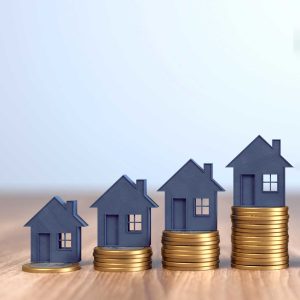
Unexpected costs when buying a home in Canada
When buying a home in Canada, there are several unexpected costs that buyers should be aware of to avoid financial surprises. Some of the key
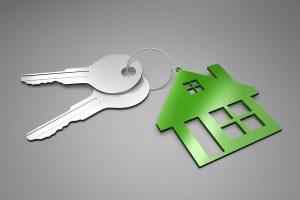
Considering An Early Mortgage Renewal
Why consider renewing your mortgage ahead of time? Well, one big reason is changes in interest rates. If rates drop, jumping on an early renewal
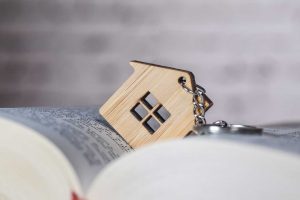
How to get a HELOC on an Investment Property in Canada
To get a Home Equity Line of Credit (HELOC) on an investment property, you need to follow these steps: 1. Know Your Finances: Estimate the

Expert Advice: Buying a House in Cash in Canada
In exploring the possibility of buying a house in cash in Canada, it’s essential to understand the various aspects that come into play. Here’s a
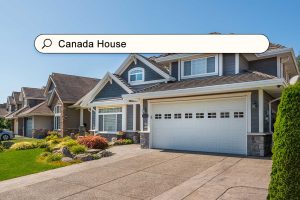
Average Down Payment for a House in Canada
According to the Canadian Real Estate Association, the average house price in Canada hit around $637,673 in August 2022. This means if you’re looking to
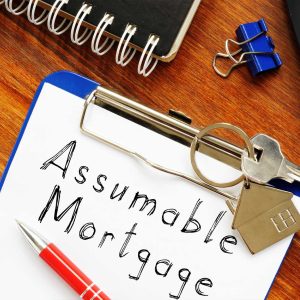
Assumable Mortgages: An In-Depth Look
Assumable mortgages are a unique financing alternative that could potentially save you thousands of dollars and simplify the home-buying process. But what exactly are they
